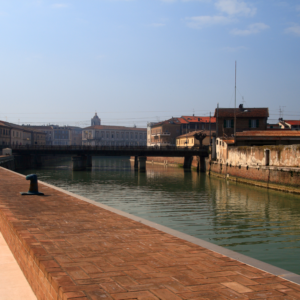About the City
Senigallia, located on Italy’s northeastern coast in the Marche region, combines a rich agricultural heritage with a thriving coastal economy. Known for its Mediterranean climate, the city supports diverse agricultural production, including vineyards, olive groves, and grain fields, while also boasting a vibrant culinary tradition.
Main Objectives
This pilot aims to:
- Establish a green, sustainable food hub to promote local food production.
- Connect small producers with consumers through an efficient distribution network.
- Encourage low-impact logistics and renewable energy solutions in food transportation.
Innovative Technical Solution
The project includes the creation of a dual-platform food hub:
- Physical Hub: A centralized location for the collection and distribution of food, powered by renewable energy systems.
- Online Platform: A digital interface connecting producers, consumers, and other stakeholders to facilitate product visibility, ordering, and logistics.
Deliveries will be conducted using low-emission vehicles, ensuring environmentally friendly transportation.
Key Stakeholders
- Farmers and Processors: Benefiting from reduced shipping costs and expanded market access.
- Retailers and Cooperatives: Gaining simplified access to local products.
- Consumers and Restaurateurs: Enjoying easier access to fresh, local, and affordable products.
- Caritas Senigallia (Undicesimaora): Supporting job creation and sustainable territorial development.
Implementation Strategy
- Hub Establishment: Set up a physical collection and distribution hub using renewable energy systems.
- Digital Integration: Launch an online platform to manage producer-consumer connections and streamline logistics.
- Sustainable Transport: Utilize low-impact vehicles for product collection and delivery.
- Stakeholder Engagement: Foster partnerships between farmers, retailers, and consumers to strengthen the local food ecosystem.
Expected Impact
- Environmental: Reduction in emissions and reliance on traditional transportation methods.
- Economic: Lower logistics costs for producers and improved market access.
- Social: Strengthened community ties and increased access to sustainable, local food options.
Senigallia’s pilot combines tradition with innovation, setting a new standard for sustainable food distribution while preserving the region’s agricultural heritage.

